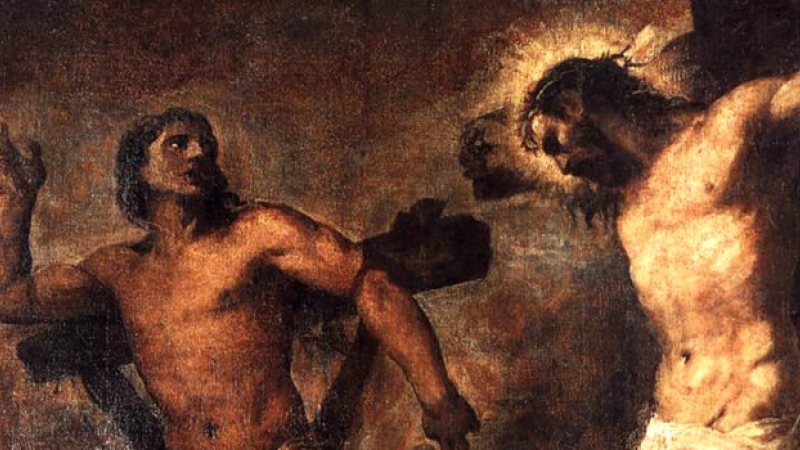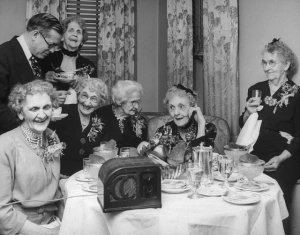Exodus 12: 1 – 14
Preached at All Saints Episcopal Church
North Adams, MA
September 6, 2020
In today’s reading from the Old Testament, heavenly power and earthly power, God and the Pharoah of Egypt are at war. God has been sending plagues to Egypt to compel Pharoah to set God;s people free.
So far, the Israelites and Egyptians have endured nine plagues (I list these only to help us feel better about our current pandemic) plagues of blood, frogs, gnats, flies, pestilence, fever boils, hail, locusts, darkness. That helps put things in perspective, doesn’t it?
In Chapter 12, the Lord speaks to Moses and Aaron. He instructs every household to cook a lamb. This is a household rite, not a temple rite. They are to eat it raw or to boil it, but to roast it, and to scatter its blood, painting the door posts and lintels. I had to look up what a lintel is — it’s the horizontal support across the top of a door.
The blood contains no magical power that protected the Israelites. The blood is a sign of life, setting the Israelites apart as belonging to God. The blood marks the divide between the world and the sacredness of home.
The home of believers is sacred…Introverts already know this, right? Home is set apart. The blood of the lamb distinguishes the Hebrews as God’s own.
Verse 13 reads, The blood shall be a sign for you on the houses where you live; when I see the blood, I will pass over you, and no plague shall destroy you when I strike the land of Egypt.
And the passage goes on to say how to eat the lamb, “your loins girded, your sandals on your feet and your staff in your hand; you shall eat it hurriedly.” (v 11) I had to look up “girding loins”, too. To gird one’s loins was to take the hem of your long robe and tuck it into your belt, so your movement isn’t impaired. In other words, prepare for a journey.
Imagine having survived storms of frogs, fever boils, hail and locusts, and now you’re receiving instructions from God about preparing a lamb, and being told you are leaving the only place you’ve ever known, dressing for a trip whose length you cannot imagine (40 years), and eating quickly. Imagine the anxiety and confusion.
Today’s reading from the Book of Exodus details the creation of the Passover rite, the first passover which occurs while the Hebrews are still in Egypt, but which will be celebrated yearly in remembrance of the liberation of God’s people from bondage
from of their 430 years of slavery in Egypt, reminds them of their 40 years of wandering under the strain of homelessness and displacement in the desert.
What is this story to us now? What lessons can we learn from the trials of a people from thousands of years ago?
We ourselves are a people in crisis, a people in need of redemption. Some of us are suffering financial instability brought on by the pandemic, with a swelling fear for our jobs or for the jobs of our children.
Our elderly and vulnerable are suffering in a desert of isolation; our teachers and children and college students are beginning school not knowing who will get sick or how long the semester will last.
And even in the best of times, many of us have been living in a variety of wildernesses; the grueling, slippery path of addiction, the unpredictability of mental illness, the barren landscapes of grief.
In Exodus God rescues his people from slavery and injustice, and prepares them for the journey to freedom, the promised land. God spares the Israelites from the 10th plague, but he does not promise an easy journey;
they will travel for decades through the desert, with bruised and blistered feet, sometimes despairing, often angry at God, with thirst and hunger and uncertainty about the future.
God the creator is present to the Israelites in the wilderness through his own creation, in a pillar of cloud by day and a pillar of fire by night. God the author of science weaves his presence and care into scripture through the truths of creation, a burning bush, fire and cloud, providing water in thirst and manna and quail in hunger.
God was present to his people then, and is to us, because, as today’s psalm reads,“The Lord takes delight in his people.”
Here I’d like to pause to reflect on a misunderstanding of scripture I had, and that maybe some of you have had. I came to Christ in my early 20s, in a denomination that did not place much emphasis on scriptural literacy.
So I just came to my own conclusions about the relationship between the Hebrew scriptures and the New Testament. Clearly, I thought, the Old Testament God is merciless and cruel, and thank goodness we have Jesus, all merciful, all loving and self-sacrificing.
If you have ever had this impression, you are in good company. In the early church, philosophers were trying to understand the meaning of Jesus’ teachings and the sect he started.
One of them, Marcion, denied the relevance of the Old Testament to Christianity. He went to far as to deny the Jewishness of Jesus. Jesus was not the son of the so-called tyrannical God of the Jews but of some other, good and benevolent God.
This heresy was put to rest in the Council of Nicaea in 325. Our Nicean Creed is a response to Marcion’s heresy, “We believe in one Lord Jesus Christ. . . God from God, Light from Light, true God from true God. . .”
The eternal Trinity is always present to us, and has always been present, always delighting in us, world without end. Jesus was not created when the Angel Gabriel spoke to Mary, neither was the Holy Spirit created as a consolation prize to the apostles after Jesus departed.
Our trinitarian God has always desired communion us, ever since he wandered through the garden of Eden seeking us, even after we had sinned, calling out, “Where are you?” (Genesis 2:9)
In Exodus God established Passover so that we remember God’s faithfulness to the oppressed. In the Eucharist we remember God’s continuing, sanctifying faithfulness in the Incarnation, death and resurrection of Jesus Christ, praying at every Eucharist, Christ our passover is sacrificed for us.
Exodus teaches us that God is present to the enslaved and the subjugated. The same God who favored the oppressed, who refreshed the Israelites with the goods of creation, with water from a rock and with manna from heaven, himself became part of creation in the incarnation of Jesus Christ.
Jesus sat with the worst sinners at his table, those despised by the holiest, most religious people. On the cross, Jesus was a criminal among criminals. From the cross he turned to the criminal beside him, cared for him and invited him to paradise.

Are you weary? Are you anxious in your present trials? Are you fearful of the journey ahead? God is with you. God’s presence does not guarantee the absence of suffering, as Jesus witnessed to us from the cross. But he promises to be with us always.
God is present to us in those who love us, in those who care for us physically and spiritually. God, the author of science, is present to us in the evolving understanding of COVID and how to treat it, in the first responders and nurses and doctors, those who prepare meals for us, those who call us and check in on us.
God is present when we pray, when we worship. God is present when we despair and when we cannot conceive of God.
No matter our current trial, temptation or sin, we are beloved. We have been saved. 1 Peter 1 reads, “For you know that it was not with perishable things such as silver or gold that you were redeemed from the empty way of life handed down to you from your ancestors, but with the precious blood of Christ, a lamb without blemish or defect. (1 Peter 1:18-19)
We have been created by a God who delights in us. We have been redeemed by the blood of the lamb, Jesus Christ. We are members of his household.
Though we may be weary, God is faithful. God remains. By God’s grace, may we remain in God.
Amen.

